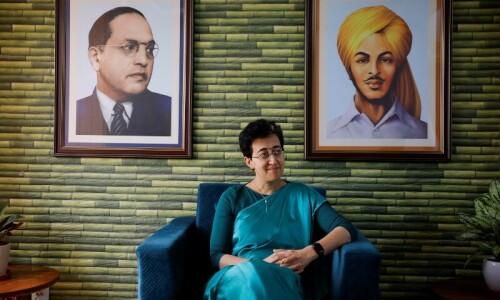ISLAMABAD, Feb 12: Federal Minister for Health Mir Aijaz Hussain Jakhrani said here on Thursday the ministry had increased prices of some drugs from 15 to 45 per cent,
Terming the increase inevitable, he said: “The raise was unavoidable owing to the reason that cost of manufacturing the drugs had increased and the current prices of these medicines were making it virtually impossible for the related pharmaceutical companies to produce them”.
He said with the increase in the cost of drug production and devaluation of rupee, the increase in the prices of drugs could not be deferred.
The minister said draft of the new health policy developed by the ministry was ready to be shared with all the stakeholders to seek their suggestions. Reluctant to disclose any specific feature of the policy, he said the draft would also be presented to the health committees of the Senate and National Assembly. It is for the first time that daft will be shared with these committees, he observed.
The minister was talking to mediapersons at a press conference held to launch ‘Mother and neo-natal tetanus prevention’ campaign.
The campaign is a part of government's efforts to reduce morbidity and mortality resulting from neonatal tetanus. The campaign has been launched in six selected districts of Punjab, comprising Lodhran, Pakpatan, Khanewal, Rajanpur, Muzaffarghar and Rahim Yar Khan, as a pilot project by the health ministry in collaboration with the Unicef and WHO. It is estimated that about 30,000 newborns die annually from neonatal tetanus.
The minister said the campaign was critical towards protecting the health and well-being of mothers and newborns. The disease still remains a major public health problem that contributes to 25 per cent of the infant mortality in many areas, he added.
The minister said this week over 2,600 field teams, including lady health workers (LHWs), would immunise nearly 3.4 million women in the selected districts.
The campaign, he said, will be spread to cover the whole country.
Emphasising the importance of support and commitment of government departments and other stakeholders, including clerics, tribal leaders, women organisations, health workers, media and local communities, he said their involvement would help improve the situation.
Quoting the examples of other countries that had successfully achieved the targets, he said: “Evidence from other countries has shown that through immunisation, neonatal deaths can be significantly reduced”.
He further said commitment to reducing deaths caused by neonatal tetanus through immunising all women of child-bearing age is also a commitment to promoting child survival.“Our efforts to reduce the burden of preventable diseases and promote child health will provide the basis for achieving other important health and development goals, including the MDGs,” he added.













































Dear visitor, the comments section is undergoing an overhaul and will return soon.